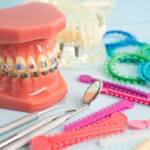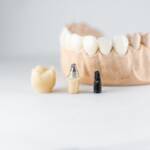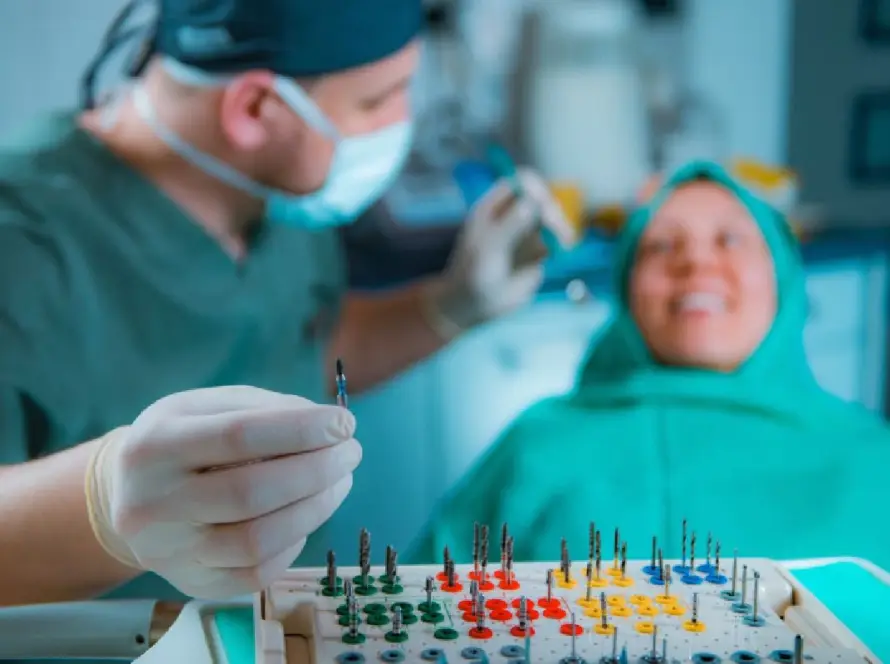
You finally did it, you got your dental implant. That confident smile in the mirror? It’s more than just a fix; it’s a fresh start. But now comes the real question: how do you make sure your implant stays just as perfect years from now?
If you’re new to dental implants or just had one placed, this guide from Humble Memorial Dental Group walks you through the steps to protect your investment, simply, safely, and effectively. Because your new smile deserves to last a lifetime.
Key Takeaways
- Dental implants require daily cleaning, brush, floss, and rinse just like natural teeth.
- Avoid hard or sticky foods that can damage your crown or implant post.
- Regular checkups are essential to catch early issues and preserve bone health.
- Healthy habits = longevity. What’s good for your body is good for your smile.
What Makes Dental Implants Special?
A dental implant isn’t just a replacement tooth, it’s a small titanium post that acts as your tooth’s root, holding a custom-made crown securely in place. It looks, feels, and functions like your natural teeth, and with proper care, it can last for decades.
According to the American Academy of Implant Dentistry (AAID), dental implants have a success rate of over 95% when properly maintained. The secret? Healthy gums and consistent hygiene.
“When I place an implant, I always remind patients that the procedure is just the beginning. Long-term success depends on how well you care for it afterward,” says Dr. Funmi Abosede, our implant and cosmetic dentistry expert with over 12 years of clinical experience.
Step 1: Keep Up With Daily Cleaning (Gently!)
Caring for an implant is a lot like caring for your natural teeth, just with a little extra love.
Do this daily:
- Brush twice a day using a soft-bristled or electric toothbrush.
- Use low-abrasive toothpaste. Whitening pastes can be too harsh for implants.
- Floss carefully with implant-safe floss or a water flosser.
- Rinse with alcohol-free mouthwash to reduce bacteria without drying your gums.
Pro tip: If you notice mild bleeding around your implant, it often means you need gentler but more consistent cleaning. If it persists, book a quick hygiene visit, our team can help before it becomes a bigger issue.
Step 2: Avoid Hidden Habits That Harm Implants
Your implant is strong, titanium strong, but it’s not indestructible. Protect it by avoiding everyday habits that can stress or loosen your crown.
- ❌ Don’t use your teeth to open bottles or tear packages.
- ❌ Avoid chewing ice, pens, or fingernails.
- ❌ Limit sticky or hard candies that strain your implant.
- ✅ If you grind your teeth, talk to your dentist about a nightguard, it’s a small fix that prevents long-term damage.
“Implants are designed to last decades, but like any precision device, they perform best when treated gently,” explains Dr. Liem Nguyen, who specializes in dental implant surgery and long-term oral health management.
Step 3: Never Skip Your Dental Checkups
Even if everything looks and feels fine, only your dentist can see what’s happening below the surface. Regular cleanings and X-rays ensure that the bone around your implant stays healthy and strong.
How often? Every 6 months for most patients, or every 3–4 months if you’ve had recent implant surgery or gum treatment.
At Humble Memorial Dental, our hygienists use special implant-safe tools to clean around your implant without scratching or damaging its surface. That’s one of the many ways we help your new smile last a lifetime.
Need help keeping your implant spotless? Schedule a hygiene appointment today, our team specializes in implant maintenance.
Step 4: Eat, Smile, and Live Confidently
Yes, you can go back to eating your favorite foods! Just balance enjoyment with awareness.
Choose a diet rich in calcium, vitamin C, and protein, which help strengthen bone and gums. Drink plenty of water to keep your mouth hydrated and bacteria under control.
“A healthy diet is part of oral care,” says Dr. Margaret Oliveri, our prosthodontics-trained dentist recognized for outstanding clinical skill. “When you nourish your body, you’re also nourishing your gums and bone, and that supports your implants for the long run.”
Step 5: When to Call Your Dentist
Reach out immediately if you notice:
- Persistent redness or swelling around your implant
- Bleeding that continues after brushing
- Loosening or clicking sensations
- Pain when chewing
Early attention can make the difference between a minor adjustment and a costly repair. Our compassionate team will examine, treat, and restore your comfort quickly.
Final Thoughts: Small Habits, Lifelong Smiles
Your dental implant is more than metal and porcelain, it’s an investment in you.
With a few mindful habits and regular checkups, your implant can look and feel brand-new for decades.
At Humble Memorial Dental Group, we believe in long-term relationships, not quick fixes. Whether you’re seeing Dr. Liem Nguyen, Dr. Margaret Oliveri, or Dr. Funmi Abosede, you can count on care rooted in expertise, empathy, and trust.
Protect your new smile, schedule your implant care visit today.
Call or text (281) 446-6527 or book online. We’ll make sure your smile stays strong for life.
Quick Implant Care Checklist
✅ Brush twice daily (soft bristles)
✅ Floss or use a water flosser daily
✅ Avoid hard foods and bad habits
✅ Visit your dentist every 6 months
✅ Eat balanced, smile often, and stay hydrated
Frequently Asked Questions
1. How long do dental implants last?
With proper care and regular dentist visits, dental implants can last 20 years or more, many last a lifetime.
2. Can dental implants get cavities?
No, the implant itself can’t get cavities. But your gums and surrounding teeth can, so good oral hygiene is still essential.
3. How soon can I brush after getting a dental implant?
Usually within 24 hours, using a soft-bristled brush and gentle motions. Your dentist may recommend waiting longer for specific cases.
4. Can I floss around a dental implant?
Yes, flossing is vital. Use implant-safe floss or a water flosser to avoid irritating the gums around your implant.
5. What foods should I avoid after implant surgery?
Stick to soft foods (soups, smoothies, mashed potatoes) for the first few days. Avoid crunchy, sticky, or hard foods until your dentist gives the go-ahead.
6. How do I know if something’s wrong with my implant?
Watch for pain, swelling, or loosening. If your bite feels different or the area looks red, contact Humble Memorial Dental immediately for evaluation.








